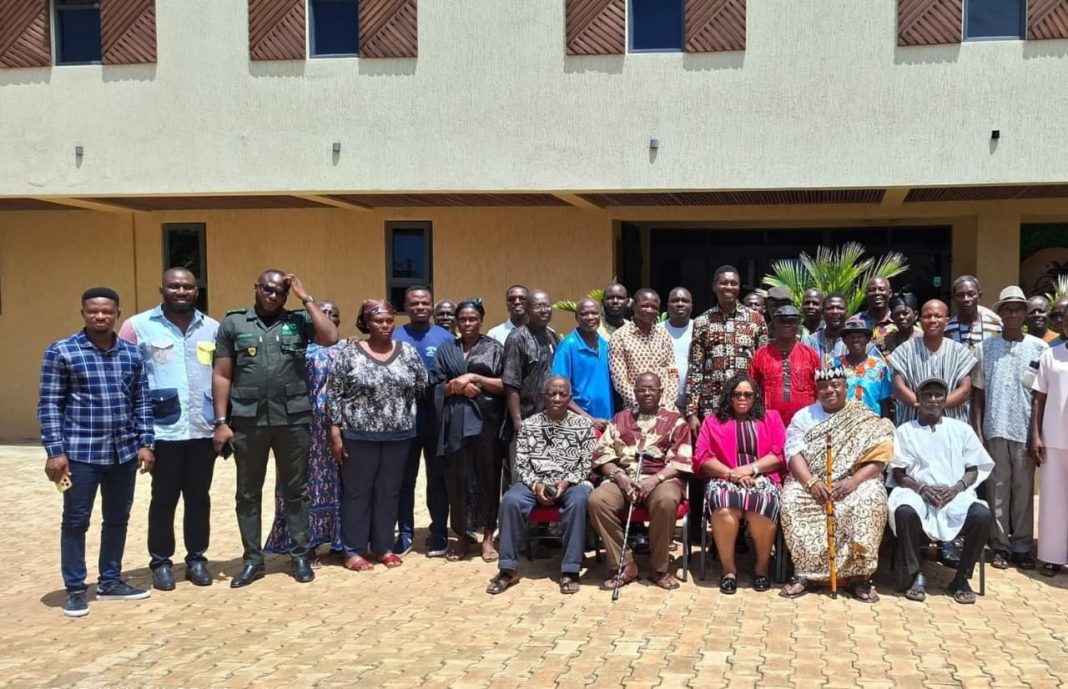By Benard Worlali Awumee
Whuti-Anloga (V/R), Oct 14, GNA – The Regenerative Development of Anlo Wetlands Limited (ReDAW) has engaged key stakeholders for the Keta Lagoon Sharing Platform Meeting, an initiative aimed at advancing mangrove restoration and wetland conservation within the Keta Lagoon Complex Ramsar Site.
The forum brought together a diverse group of participants, including traditional authorities, landowners, representatives of the Environmental Protection Agency (EPA), the Forestry Commission, and other relevant institutions, in a collective effort to discuss the future of the lagoon ecosystem and strengthen collaboration for sustainable development.
Addressing the gathering, officials of ReDAW Ltd presented a comprehensive update on ongoing interventions geared towards restoring degraded mangrove ecosystems, enhancing community livelihoods, and promoting climate resilience across the Anlo wetlands.
The project currently covers communities such as Fiaxor, Atito, Aflorto, Genui, and Sodzi-Vorvornukorpe in the Anloga District.
Mr Joseph Kpattah, the Presiding Member of Anloga District Assembly, commended ReDAW for its proactive initiatives and reaffirmed the Assembly’s commitment to supporting environmentally sustainable programs that also create livelihood opportunities.
“The survival of our mangroves is directly linked to the survival of our people. Protecting these ecosystems means protecting our livelihoods, our fisheries, and our future as a coastal district,” he said.
A representative from the Forestry Commission reiterated the ecological significance of the wetlands, stressing that mangroves were “the natural lungs of our lagoon system,” which must be protected through replanting and regulation.
Participants acknowledged that the mangrove forests of the Keta Lagoon Complex served as a crucial lifeline for thousands of residents, providing fuelwood, fish breeding grounds, and protection against coastal erosion.
They noted that beyond their economic value, mangroves played a vital ecological role by absorbing carbon, stabilising the shoreline, and maintaining biodiversity within the Ramsar Site.
Discussions at the meeting highlighted the need for stronger community ownership, effective enforcement of conservation regulations, and the adoption of sustainable harvesting practices to prevent further degradation.
Traditional leaders and landowners also expressed their commitment to collaborate with ReDAW and state agencies to ensure the protection and regeneration of mangrove habitats for future generations.
Speaking at the sidelines of the event, they emphasised that safeguarding the mangrove ecosystem was not only an environmental obligation but also a socio-economic necessity, as it supported fisheries, eco-tourism, and local industries that sustain livelihoods across the Anlo area.
The Keta Lagoon Sharing Platform Meeting thus reaffirmed the shared resolve among stakeholders, to protect the wetlands through community-driven conservation, research-based interventions, and inclusive partnerships, positioning the Anlo wetlands as a model for regenerative ecological development in Ghana’s coastal zone.
GNA
Edited By Maxwell Awumah/ Christabel Addo
